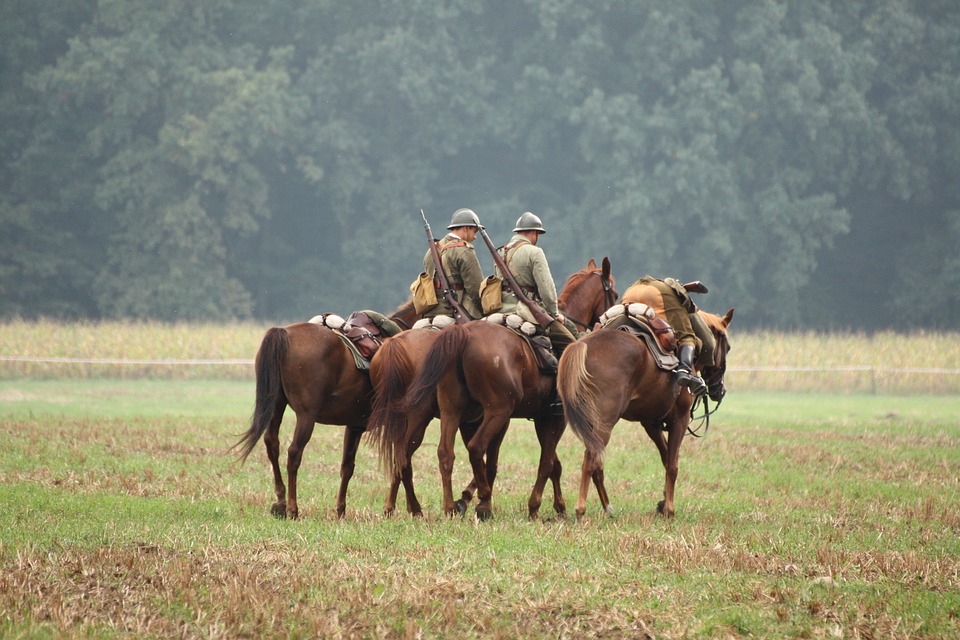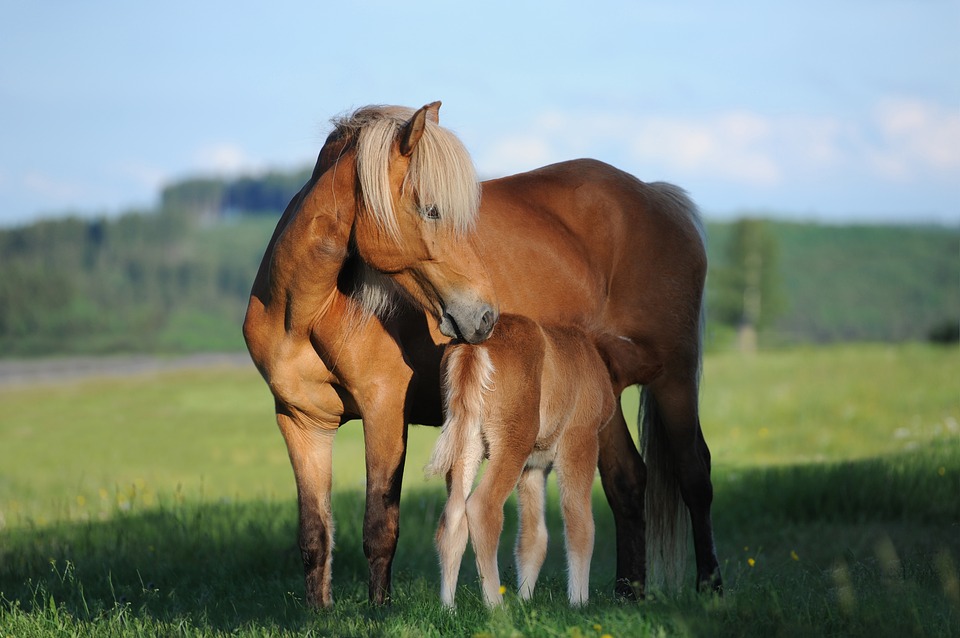What are the stages of a horse’s life?
When we’re talking about horses at different stages of their lives, we use the following terminology:
- Foal – less than one year old
- Yearling – between one and two years of age
- Colt – male horse under four years of age
- Filly – female horse under four years of age
- Mare – female horse four or older
- Stallion – non-castrated male horse over four years of age
- Gelding – a castrated male at any age
Sometimes people refer to young horses as ponies, but this isn’t correct. A pony is just a small breed of horse below 14.2 hands high.
What have horses been traditionally used for?
Traditionally beasts of burden, horses have taken on many different roles since being domesticated. Humans have used them for work – ploughing the fields and pulling carts in agriculture; for travel – transporting people and their belongings; and for pleasure – entertainment, sports and even as food in some countries. Horsehair from horses’ manes and tails was also used for stuffing chairs and cushions in upholstery, paintbrushes and even horsehair plaster in old buildings.
Were horses used in the war?

In terms of their military history, horses played an important role in both World Wars, but especially World War One, transporting troops and machinery to the front lines. First used by the British in Mons in 1914, horses were favoured on the battlefield for their great reliability and speed.
Over a million horses were deployed by British Forces over the course of the conflict, with more than 220,000 used as supply horses, moving ammunition, supplies and being used as ambulances to transport the injured back to safety. But it wasn’t just their physical strength that helped our troops during the war. Horses also provided great comfort to the soldiers and many men bonded with their animals, helping to boost morale in horrific conditions.
Where does the word ‘horsepower’ come from?
According to the Historic UK website, horsepower was created as a measurement by Scottish engineer James Watt when he was creating the steam engine. Horsepower is defined as 1 horsepower = 33,000 foot-pounds of work per minute – meaning that one steam engine could essentially do the work of five horses!
Three interesting facts about horses
-
Horses can’t breathe through their mouths
A horse with a blocked nose can be a very serious matter indeed, as these great animals cannot breathe through their mouths. If you see a horse struggling for breath, contact the vet immediately as respiratory issues could spell disaster for our equine friends.
-
We have some well-known phrases derived from horses
Ever heard the saying ‘straight from the horse’s mouth?’ This relates to the fact that you can roughly tell a horse’s age by looking at its teeth. And because this is something that a horse can’t fake, you know it’s the truth – hence ‘straight from the horses mouth’ means that the piece of information you’ve just heard is bound to be true!
-
One horse year is equal to six human years
Did you know that by the time two years have passed, your new horse will be in its teens! Horses can live up to around 30 human years, so make sure you have quality horse insurance to protect them throughout their lives.
To find out more interesting facts about horses, read our ‘5 interesting facts about horses’ article.
Protecting your horse with horse insurance
If you’ve just invested in a new horse, you’ll want to make sure that you’ve done all you can to protect that investment. Animal husbandry costs, vets bills and hospitalisation costs are rising all the time, so it’s important to protect your horse so you don’t lose out financially should the unexpected happen.
There are varying levels of horse insurance, so talk to our friendly team today to find out about the right one for you. Perhaps you just need some Happy Hacker insurance, which provides insurance for leisure horses, or maybe you’re looking to protect your competition winner.
Horse insurance can provide benefits such as:
- Cover up to £100,000
- £10,000 towards vets fees
- Cover for saddlery and tack
- Public liability cover up to £1 million
- Cover for death, theft or straying of horses
- Horseboarding sport cover
Call our friendly team today to get a quote for horse insurance on 01480 22 00 89 or get a quote online.





